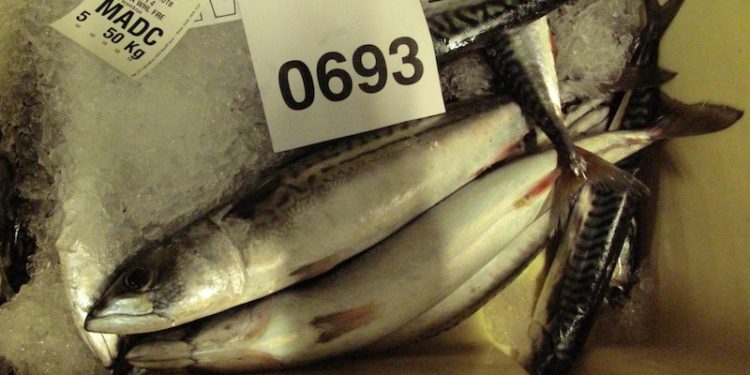The ICES perception of the stock is contrary to that witnessed by fishermen on the fishing grounds, according to Ian Gatt, chief executive of the Scottish Pelagic Fishermen’s Association, commenting on the news that ICES advises a cut in the 2019 mackerel catch.
‘There is considerable uncertainty over the accuracy of this year’s scientific assessment due to a number of factors, including concerns over how the assessment model uses data from tagged mackerel, which has pulled down the calculated Spawning Stock Biomass figure,’ Ian Gatt said.
‘Tagged mackerel data has only been used in the assessment process in recent times, and because its data shows a much higher biomass reduction, it is at odds from other data in the scientific process and throws doubt on the overall stock assessment. The ICES perception of the stock is also contrary to that witnessed by fishermen on the fishing grounds.’
He commented that the assessment uses updated egg survey information from two years ago, and with new egg survey data available next year, the SPFA is hopeful this will ensure a more accurate assessment of the stock. Scientists specialising in mackerel will be forming a working group in the early part of next year to look at the issues with the tagging information and how the data is processed by the assessment model.
‘As a responsible industry, we are committed to ensuring a sustainable fishery, and we will be working with our partners in the EU, Norway and Faroes on how we can all work closely together to aid this process of ensuring the best possible science when assessing the stock. We are also committed to working with Scottish and UK governments and coastal states fisheries managers to find an acceptable solution to managing the 2019 fishery,’ Ian Gatt said.
The SPFA’s chief scientific officer Dr Steven Mackinson added that the 2018 stock assessment for mackerel indicates that the spawning stock biomass is just below 2.57 million tonnes, the biomass considered to give maximum long term yield, but could be between 1.75 to 3.75 million tonnes.
‘ICES believe that low recruitments in 2015 and 2016 combined with high fishing pressure are important contributors to the declining trend, with the result that ICES advice for catches in 2019 is 42% less than the advised catch for 2018,’ he said.
‘ICES considers the assessment to be uncertain because of its sensitivity to scientific survey data that are relatively new and vary from year to year. This year in particular, there are significant concerns regarding how the assessment model uses data from tagged mackerel, which is leading to lower estimates of stock abundance due to an apparent low survival rate of the tagged mackerel.’
He commented that another important uncertainty, which affects predictions of future stock size and catch, is that recruitment estimates have not been quantified for 2016 and 2017 due to the data being unavailable at the time of the assessment.









